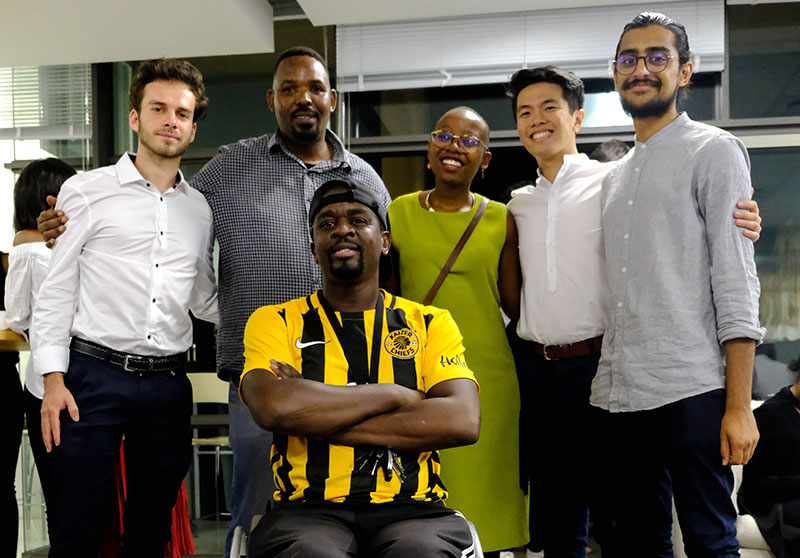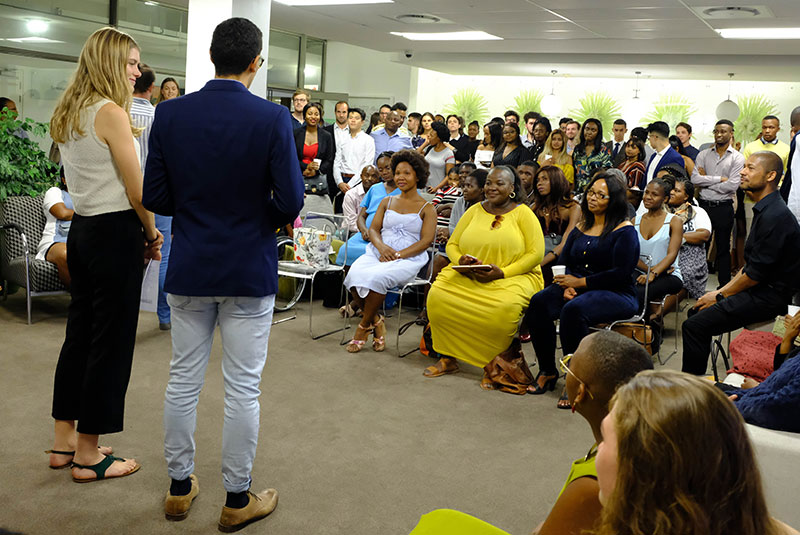Phaphama SEDI and UCT students help local entrepreneurs rise
15 March 2021 | Story Carla Bernardo. Photos Supplied. Voice Neliswa Sosibo. Read time 5 min.
Phaphama Social Enterprise Development Initiative (SEDI), a non-profit organisation (NPO) established in part by University of Cape Town (UCT) student societies and alumni, is working to increase the entrepreneurial capacity of small business owners in developing communities.
Loosely translated from isiXhosa, Phaphama means “to rise” – and that is what the organisation has been helping local entrepreneurs to do since its establishment in 2014.
Founded by a collection of UCT societies, including the Studentsʼ Health and Welfare Centres Organisation (SHAWCO), and external organisations, the group was inspired to drive on-the-ground change by developing small enterprises, doing so without the red tape that’s often associated with this.
“Another aim is to enable UCT students to apply the theory they learn in class to a real-world context.”
Another aim is to enable UCT students to apply the theory they learn in class to a real-world context. Thus far, over 200 UCT students have participated, and in recent years, consultant teams have consisted of around 60 students annually.
Through their participation, students improve their understanding of the intricacies of the South African economy while working with established consultancy professionals and local entrepreneurs. In turn, the consultants and entrepreneurs get perspectives from students who are studying in an array of fields, such as economics, law and engineering.
Taking the next step
The enterprises that Phaphama SEDI works with are located on the Cape Flats – in Khayelitsha and Philippi.
“Both areas present an abundance of small businesses that need assistance to take the next step in the development of their businesses and … many of the resources intended to help them with this goal are often not readily available to them,” said Jonathan Boulle, a consultant coordinator at Phaphama SEDI.
Boulle added that the organisation has developed relationships with the two communities, and by continuing their focus there, they can develop and strengthen these ties. Interested entrepreneurs can apply to be part of the year-long programme.

Businesses that are of interest to Phaphama SEDI are those in search of guidance about basic financial planning, online development, marketing and the development of future business strategies.
Participating entrepreneurs receive training at weekly workshops. These are prepared by industry professionals and brought to life by the entrepreneurs, with the help of student consultants. Each entrepreneur is assigned three students whose degree programmes are relevant to the needs of the small business.
Success stories
There are numerous success stories, one of which is about Andy Buthane, a seamstress and fashion designer. When she joined the programme, she was working in a small storeroom and operating at a loss every month.
After a year in the programme, Buthane had managed to turn things around. Thanks in large part to the workshops and consultants’ guidance, she is pocketing profits every month, has moved out of the storeroom and has joined a design collective, and can now train and employ new staff members.
“She has not only managed to uplift herself and her family but also catalysed a domino effect where other people from her community have also gained the opportunity of economic upliftment through the work she does,” said Boulle.

Another success story is that of Grace Dila. When she joined the Phaphama SEDI programme, Dila was running a small kitchen from a container. Since then, she has expanded her business and branched out, opening a restaurant.
Boulle added that students who want to get involved are invited to apply online at the start of the new term. Applicants will be interviewed for consultant positions and, if successful, they will be able to choose which business they think could best benefit from their input.
Taking this into account, the Phaphama SEDI committee will make the final decision on the allocation of consultants to entrepreneurs, considering the industries and skill sets required by each individual business. Students will then work in teams of three to assist their allocated entrepreneur.
Finally, due to the prevailing conditions of the pandemic, the programme will be conducted remotely – at least for the first semester of 2021.
 This work is licensed under a Creative Commons Attribution-NoDerivatives 4.0 International License.
This work is licensed under a Creative Commons Attribution-NoDerivatives 4.0 International License.
Please view the republishing articles page for more information.
Listen to the news
The stories in this selection include an audio recording for your listening convenience.























































































































































































































































































































































































